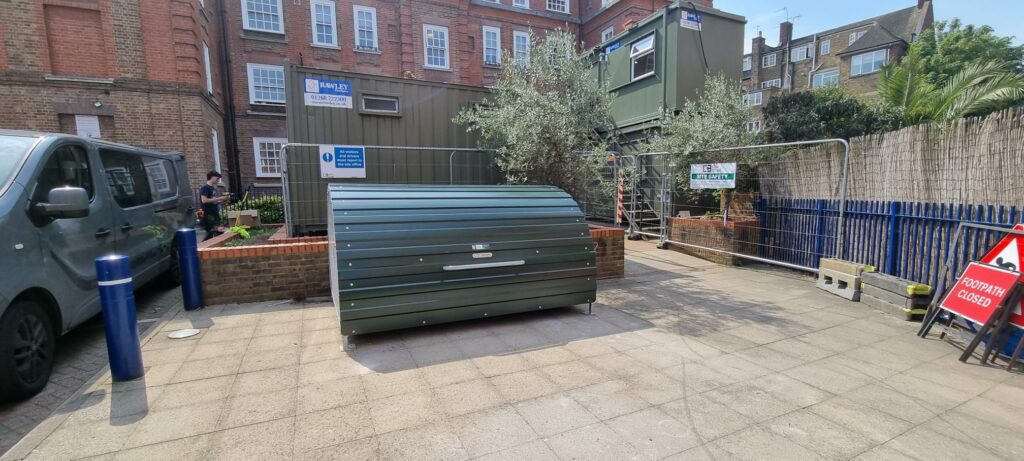London Climate Action Week 2023

We do a lot of work within the social housing sector at Chas Berger and as we continue to win a variety of contracts relating to decarbonisation and retrofit of existing housing stock, and with it being London Climate Action Week 2023 (26-30 June 2023), we have been looking at the multifaceted and interconnected relationship between social housing and the climate. Social housing plays a crucial role in addressing climate change and promoting sustainability in several ways:
Energy Efficiency: Social housing provides an opportunity to implement energy-efficient measures that reduce carbon emissions. Improving insulation, using energy-saving appliances, and implementing renewable energy solutions like solar panels can significantly decrease energy consumption and associated greenhouse gas emissions. Energy-efficient social housing not only reduces the carbon footprint but also helps tenants save on energy bills, alleviating energy poverty.

Fuel Poverty Reduction: Social housing has a direct impact on mitigating fuel poverty, which is especially prevalent among low-income households. Fuel poverty occurs when individuals or families struggle to afford adequate heating or cooling for their homes. By ensuring that social housing units are well-insulated and equipped with efficient heating and cooling systems, the sector can alleviate fuel poverty, improve living conditions, and reduce energy waste.
Sustainable Building Practices: The construction and maintenance of social housing can integrate sustainable building practices. Using eco-friendly construction materials, such as recycled or low-carbon materials, reduces the environmental impact of the building process. Additionally, designing social housing with a focus on natural light, ventilation, and green spaces can enhance occupant well-being, reduce energy demand, and provide climate resilience.
Urban Planning and Transportation: Social housing projects offer an opportunity to consider urban planning and transportation options that promote sustainable lifestyles. By locating social housing in well-connected areas with access to public transportation, amenities, and green spaces, residents can reduce their reliance on private vehicles, lower carbon emissions, and improve air quality. Additionally, incorporating bike storage, electric vehicle charging stations, and car-sharing schemes in social housing developments can further encourage sustainable transportation choices. As part of our social value commitments, we have installed bike storage to several areas, enabling residents to store their bikes safely and securely.

Community Engagement and Resilience: Social housing communities can become focal points for climate resilience and community engagement. Encouraging resident participation in climate action initiatives, such as community gardens, composting programmes, and energy-saving campaigns, fosters a sense of collective responsibility and empowerment. Engaging residents in climate education and awareness programmes can also lead to behavioural changes that contribute to a more sustainable and climate-conscious society. We have a calendar of Social Value projects planned around this over the coming months.
Climate Justice: Social housing is intimately linked to climate justice. Low-income communities often bear the brunt of climate change impacts, such as extreme weather events or urban heat island effects. Providing affordable, climate-resilient social housing ensures that vulnerable populations have access to safe and secure homes that protect them from climate-related risks. Climate action in the social housing sector should prioritise equitable distribution, ensuring that the most marginalised communities benefit from sustainable and climate-friendly housing solutions.
Social housing plays a critical role in addressing climate change by promoting energy efficiency, reducing fuel poverty, incorporating sustainable building practices, influencing urban planning and transportation, fostering community engagement, and advancing climate justice. Working closely with our housing provider clients, and communities, we hope that together we can create sustainable, resilient, and equitable housing solutions that contribute to a low-carbon future.
Related Posts

Project Progress Update | Tylney Croft, Harlow
We’re making great strides at Tylney Croft, a two-storey supported housing block in the Great Parndon area of Harlow....

Platinum Sponsor | Essex Build Expo 2026
We’re proud to announce that Chas Berger is a Platinum Sponsor of the Essex Build Expo 2026 in partnership...

Behind the Win | 10 Years of Delivery with Southern Housing
Chas Berger’s appointment to Lot 3 on Southern Housing’s 2026-2046 programme reflects a decade of consistent, high-quality delivery and...

